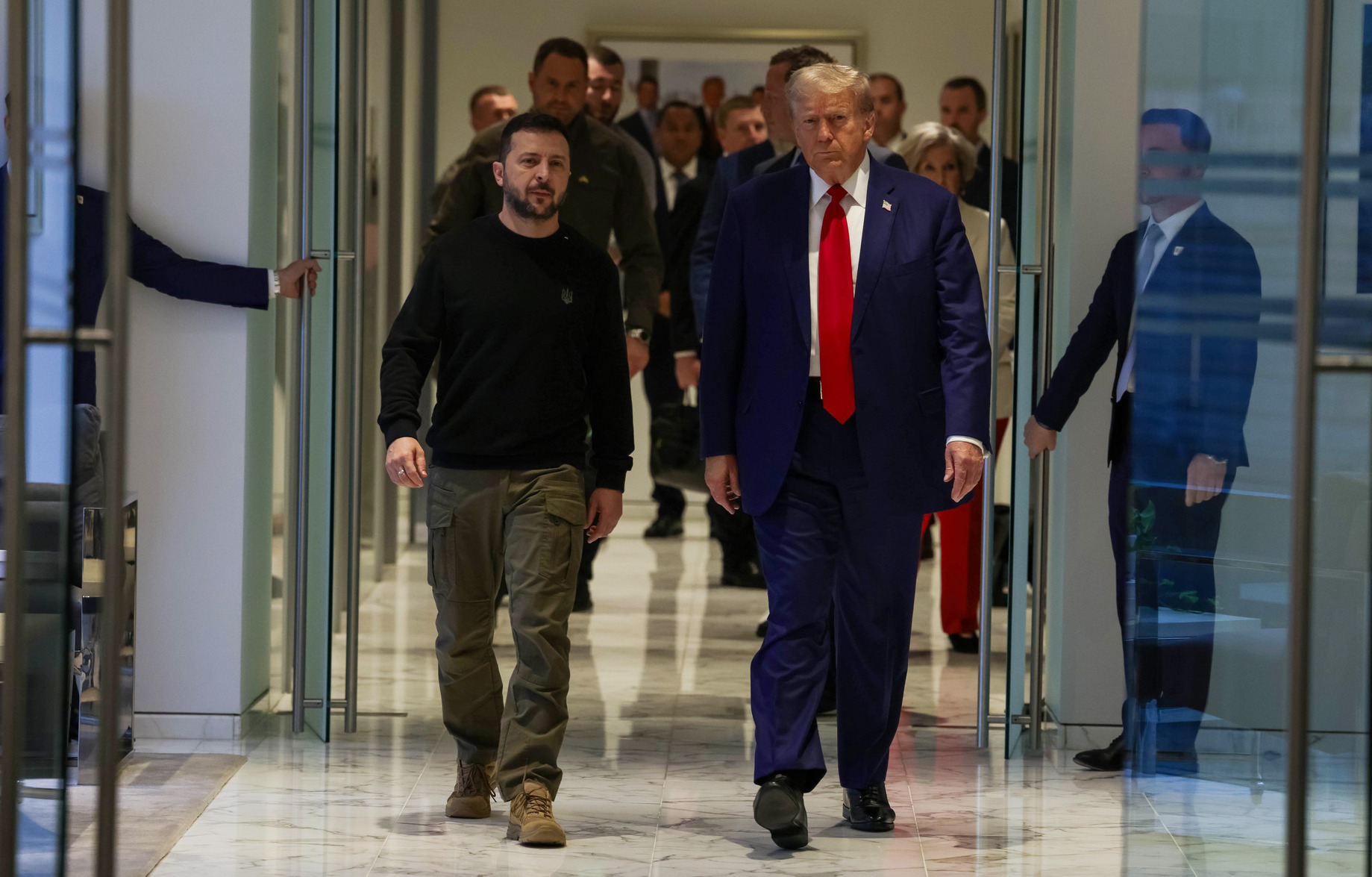President Volodymyr Zelensky’s meeting with former President Trump, though it led to nothing concrete, was a sensible move by both sides. In Zelensky’s case, it was an acknowledgement of the obvious fact that Trump may win in November, and it will then be desperately important for Zelensky to have some kind of working relationship with him. For Trump, the meeting was meant to protect him against allegations of being an ally of Putin, and also acknowledged the simple truth that if he is elected and wishes to promote an end to the war in Ukraine, he will have to deal with Zelensky.
As to Zelensky’s “Victory Plan”, there is no chance whatsoever of this succeeding. Ukraine cannot possibly drive Russia out of all — or most likely any — of the territory Russia has taken since 2014. On the contrary, it is now the Ukrainian army that is slowly retreating in the Donbas. The real question is whether Zelensky and the Ukrainian government now themselves believe in this plan, and if not, why they are still pushing it.
In off-the-record remarks, officials of the Biden administration have expressed deep scepticism about the Ukrainian plan. President Biden has somewhat increased existing US military aid to Ukraine, but he has refused to allow (British-provided but US-guided) Storm Shadow missiles to be fired deep into Russia, for fear of drastic Russian retaliation, especially in the Middle East. And even if the Storm Shadows had been given the green light, this would not have led to Ukrainian “victory”, though it would probably have helped slow down the Russian advance. Nor is there any chance that Ukraine will receive a definite and guaranteed timetable for Nato membership (which Hungary, Turkey, Slovakia — and perhaps in future Germany and France) will in any case veto.
It is in fact now becoming increasingly accepted in private by Western officials that the war (or perhaps only the fighting) will end roughly on the basis established in the Istanbul negotiations in the first weeks of the war, and recently sketched by Trump’s vice presidential candidate, Senator J.D. Vance: there will be a ceasefire along wherever the front line eventually runs; the issue of sovereignty over the four provinces Russia claims to have annexed will be deferred for (endless) future negotiation, as in the case of Cyprus; in the meantime, both sides will promise not to change the ceasefire line by force; and Ukraine will sign a treaty of neutrality, accompanied by some form of international guarantees for its security and territorial integrity.
There are increasing signs of a recognition in Kyiv that this is the best that Ukraine is likely to get, and that if the war continues, it may end up with a great deal less. A Ukrainian businessman told me that “in private, everyone now knows that we will not get the lost territories back.” The feeling is growing that Ukraine should let the occupied territories go (though without ever legally conceding this) so that Ukraine can rebuild its economy and move towards membership of the European Union. The Ukrainian government could then declare a peace along existing lines to be not a defeat but a qualified victory, that saves 80% of Ukraine and secures its European future. According to opinion polls, the Ukrainian public is also shifting in this direction, though slowly.
This shift in opinion is due largely to grim news from the front line, the failure of the incursion into Kursk to divert Russian forces from the Donbas, and the prospect of a winter of power cuts due to Russian destruction of Ukraine’s energy infrastructure.
It also stems from developments in Western Europe (and to a lesser extent the US), where state welfare and health budgets are under intense pressure, and public opinion is shifting in favour of an early peace. This is most apparent in Germany, the lynchpin of European support for Ukraine, where the anti-war Alternative fuer Deutchland (afD) and the new Sahra Wagenknecht Alliance (BSW) made huge gains in eastern German state elections this month.
It has been suggested, therefore, that Zelensky never expected his “Victory Plan” to be accepted, and that it is actually a preparation for Ukrainian acceptance of a compromise peace. He will say to the Ukrainian people that he did his utmost to gain Western help for victory, but he was betrayed by Ukraine’s Western allies, and therefore has no choice but to make peace.
If Trump wins, this moment may perhaps come quite quickly — though it is unwise to make any firm predictions about Trump, given what we know of his character. Under Harris, it could take considerably longer. As part of her campaign strategy against Trump, she is digging herself deeper and deeper into support for Ukrainian “victory” in her public statements, and will therefore find it correspondingly harder to change course.
The question is whether Ukraine can go on falling back very slowly, while inflicting heavy casualties on the Russians (but also suffering heavy casualties in its own much smaller army); or whether at some point the bloody stalemate will break and the Ukrainian front will collapse, as the Italians did in October 1917, the Germans did in August 1918, and the British and French nearly did in March 1918. This question cannot be answered, but it must be raised — and with it, the question of whether the search for a peace settlement may be even more urgent than now appears.











Join the discussion
Join like minded readers that support our journalism by becoming a paid subscriber
To join the discussion in the comments, become a paid subscriber.
Join like minded readers that support our journalism, read unlimited articles and enjoy other subscriber-only benefits.
Subscribe